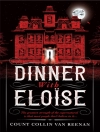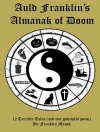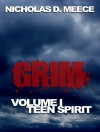H. P. Lovecraft’s 'The Collected Works’ assembles his groundbreaking contributions to the genre of weird fiction, weaving a tapestry of cosmic horror, the unknown, and the uncanny. Comprising influential stories such as 'The Call of Cthulhu’ and 'At the Mountains of Madness, ’ the collection exemplifies Lovecraft’s unique literary style, marked by archaic language, intricate world-building, and a pervasive sense of dread. Set against the backdrop of the early 20th century, a time characterized by burgeoning anxieties toward modernity and the insignificance of humanity in the cosmos, Lovecraft’s work challenges readers to confront the terrifying vastness of existence and the fragility of sanity. Born in 1890 in Providence, Rhode Island, H. P. Lovecraft’s own life experiences—marked by personal tragedy, poverty, and a profound fascination with the arcane—shaped his literary vision. His exposure to classical literature, combined with a deep-seated apprehension toward scientific advancements, fueled his desire to explore existential fears through fiction. Lovecraft’s struggle to find acceptance in both personal and literary spheres made his themes of isolation and the unknown palpably resonant. For readers seeking to delve into the annals of horror literature, 'The Collected Works’ serves as an essential tome. It encapsulates Lovecraft’s mastery of atmosphere and his pioneering inventiveness in crafting narratives that resonate with dread and curiosity. This collection invites both newcomers and seasoned enthusiasts to immerse themselves in Lovecraft’s mythos, provoking thought about our place in the universe and the lurking horrors that may lie just beyond comprehension.
O autorze
Howard Phillips Lovecraft, known as H. P. Lovecraft (1890–1937), was an American writer of weird fiction and horror literature, who posthumously became one of the most significant figures in the genre’s history. Born and raised in Providence, Rhode Island, Lovecraft’s writing is distinguished by its atmospheric detail and a cosmology populated by ancient, otherworldly horrors, such as Cthulhu and other entities from his famous Cthulhu Mythos. Lovecraft’s influence is so profound that it extends beyond literature, shaping modern horror in various media.
With a style marked by antiquarian verbosity and an embrace of the macabre, Lovecraft introduced readers to a universe of cosmic dread and existential fear, believing humanity’s place in the cosmos was insignificant. His collected works, which include such seminal tales as 'The Call of Cthulhu’, 'At the Mountains of Madness’, and 'The Shadow over Innsmouth’, were not initially commercially successful. Only after his untimely death from intestinal cancer did his reputation grow, resulting in a legacy that would position him alongside Edgar Allan Poe in terms of impact on the horror genre. Despite this belated recognition, the racism and xenophobia found in his personal correspondence and some of his fiction have cast a shadow over his legacy, prompting ongoing debates in literary circles.












